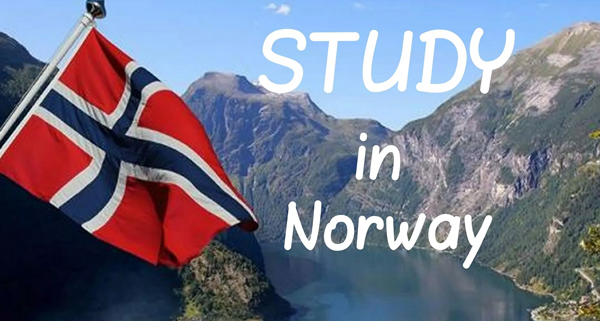Norway offers you a unique student experience and Norwegian institutions of higher education welcome applications sent by qualified students from all over the world.
Benefits of studying in Norway
Studying in Norway provides access to a world-class education system with a supportive structure offering loans to all students. A Norway student visa allows you to live and study in Norway for the duration of your course. After your studies have been completed, you will have the option of applying for residence as a skilled worker. A Norway student visa also acts as a work permit allowing you to work part-time during your semester and full-time during your break.
About Country
Capital (and largest city): Oslo.
Official language (s): Norwegian.
Ethnic groups: 86.2% Norwegians.
Government: Unitary parliamentary constitutional monarchy.
Area: Total 385,252 km2 (61st1) 148,746 sq mi.
Water (%): 7.03.
Population: 2012 census 4,985,870.
Density: 15.5/km2 (213th) 35/sq mi.
Currency: Norwegian krone (NOK).
Entrance Requirements
All international applicants must fulfil the same basic entrance requirements as Norwegian students. These requirements vary depending on the country in which the applicant has completed his or her primary and secondary education. Applicants must normally have completed upper secondary education. In addition, there are specific entry requirements for programmes in certain subjects. In some cases, non-formal competence or occupational experience may be included as qualification for entry into a study programme. Students who apply for graduate degree studies must satisfy requirements regarding previous study at university level.
A new degree structure, adopted from the Bologna Process, has been introduced into the Norwegian higher education sector. Norwegian universities and university colleges now issue the following degrees:
• Bachelor’s degree (three years),
• Master’s degree (two years),
• Ph.D. (three years).
In a few subject areas, students will enrol for a five-year integrated degree course (Master’s degree). Certain specialized programmes, such as medicine, veterinary science, psychology and theology follow a different degree structure that extends over four to six years.
A good command of English is required of all students attending Norwegian institutions of higher education. International students who are not native speakers of English must document their English-language proficiency. International students accepted for bachelor’s degree studies must complete a preparatory programme in Norwegian language before they begin a study programme, unless they can document a good command of the Norwegian language. The Norwegian language programme includes Norwegian language courses and a course in Norwegian life and society, and normally takes two semesters to complete.
Programmes
- Undergraduate studies
- Masters programmes
- Ph.D. Programmes
- Research
- Summer programmes
Fees
Students will have to pay a semester fee of NOK 300-600 each semester. In order to take an exam this fee will have to be paid in full. But the fee also grants you membership in the local student welfare organisation, which in turn entitles you to several benefits. These benefits may include on campus health services, counselling, access to sports facilities and cultural activities.
Payment of the semester fee is also necessary to get an official student card that, among other things, gives you reduced fares on most forms of public transport and lower ticket prices to various cultural events.
Programmes and courses with tutition fees
Most private institutions have tuition fees for all their programmes and courses. But the fees are usually significantly lower than those of comparable studies in most other countries. Also, foreign students don’t pay higher tuition fees than Norwegian students.
State universities and university colleges may have tuition fees for a few specialised programmes. Typically these programmes are at the Masters level.
Tuition Fees totally depends on the course and educational institutions.




